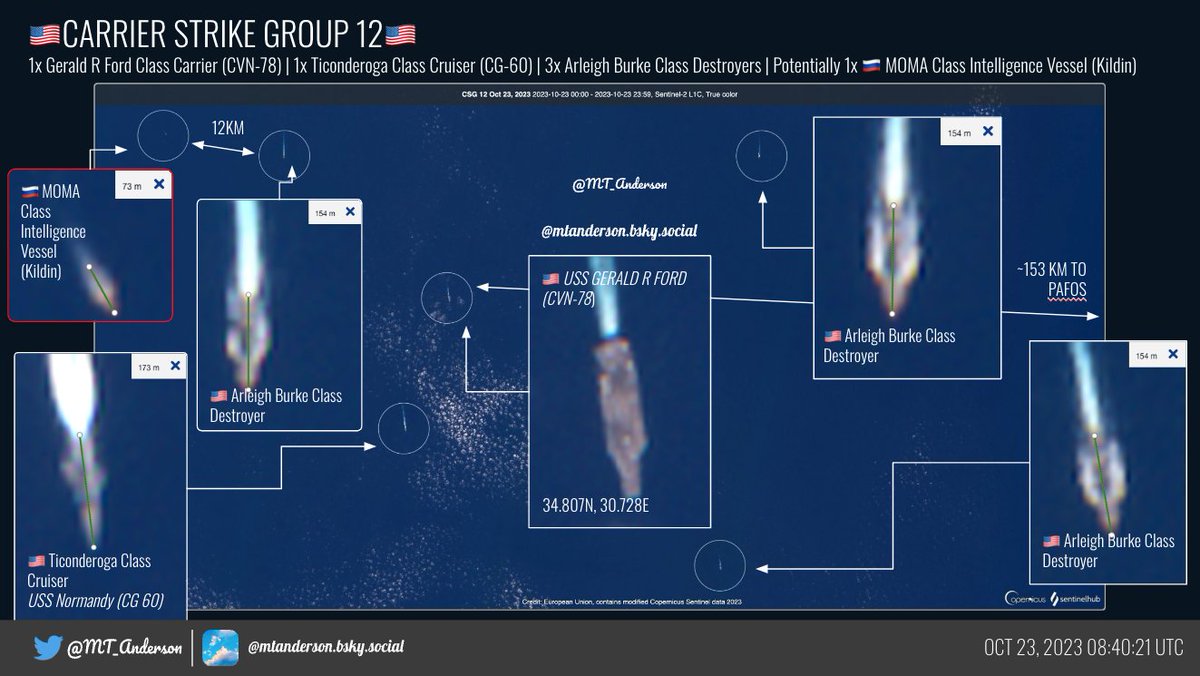True. However, it isn't the 1950s. The paradigm has changed greatly then. China now has the means to target the US, and Taiwan is no longer recognized officially by the US.First of all, I'd like to see some actual sources backing this up because this is a hot geopolitical take. I can at least point to POTUS stating on air that the US would defend Taiwan, which while rapidly rolled back is at least makes one think that maybe making blanket statement that the US won't lift a finger to defend Taiwan is a comical oversimplification. Its thinking like this that's gonna actually lead to a global conflict. "Well since X didn't lead to US intervention, now we can do what ever we want!" Yeah, nuclear weapons seem like a big deterrent. Admittedly, so far they are. No nuclear powers have fought each other. However, I'm not sure thats an assumption that's going to hold true forever.
I could write a book on the fundamental differences between Ukraine and Taiwan (US national security interests wise), but the US has been geared toward defending Taiwan since the 1950s. Ukraine? Not as much.
Suffice to say, the logic that since the III US Corps didn't get deployed to defend Ukraine = "We'Ll nEvEr InTeRvEnE eVeR!" is laughable. Maybe you are right, maybe we won't...but that's not a bet I'd make
What's your point?Oh my! China has nuclear weapons! Its all over! Oh wait. So does the US. You know the functional word in MAD is "Mutual," right?
Taiwan is not a US treaty ally. If it was, I would say MAD would prevent a conflict. But Taiwan is in a bad limbo state, similar to how Ukraine cooperated heavily with the EU and NATO, yet was not part of them and thus not subject to protection from them. It's extremely vulnerable to Chinese attack, and I don't think offhand comments that the US will defend them are any more of a deterrent than offhand comments would have prevented Russia's invasion of Ukraine.
An invasion of Taiwan would not destroy the international rules based order anymore than the invasion of Ukraine "destroyed" it. I mean, Putin has his fantasies that it is in collapse, but that obviously isn't the case.Another gross oversimplification...at minimum Taiwan going under would mean the liberal rules based international order just got taken out back and shot, which for all of the grievances some people have with it, at least keeps the world somewhat stable. The US (and most of the rest of world) likes "somewhat stable" so again, there's a whole lot more at stake here than computer chips. But computer chips alone are important, and it is again laughable the US would shrug and just try and build them in the US. If you told the US populace "we either keep Taiwan or no one is going to have smartphone for 25 years"...Hell even some of social media influencers might support the war. (ok not the best analogy but you get my point.)
The US did not intervene in 1973 to bring peace to the region and end the oil crisis. Shortages went on, but the world didn't end.
When I was talking about how China has their own satellite network and ability to produce their own munitions, I was simply saying they don't need support from Russia in the same way Ukraine needs support from NATO.You mention earlier that China would not be incompetent as Russia. And maybe you are right. But keep in mind the invasion of Taiwan would surpass D-Day in complexity, and was conducted by a coalition that had an awful lot of experience in working together jointly in amphibious operations. China has none of that experience, and will have to do so in against an opponent that has had decades to plan against in eventuality. Let me put it this way: if somehow through some freaky Friday scenario, the US was now China and had to invade Taiwan...lets just say that's not a fight I'm looking forward to given geography or the the trends in technology.
I am suggesting that China has learned from Ukraine not to expect a short war. They will spend months bombing military and infrastructure targets, blockading ports, before attempting an amphibious assault.Also, the assumption that China would roll over Taiwan is another over simplification. Proximity and mass does not always equal speed. Everyone plans quick, short wars. They rarely ever end up that way.
I am highly skeptical they are going to thunder run their amphibs onto Taiwanese shores, in the face of the hundreds of missile boats, ASM batteries, and coming fleet of drones Taiwan has/will have.
I agree it won't be easy, but it will probably be more like Afghanistan for the Soviets than Ukraine for the Russians.Taiwan probably wont be an easy fight for China, and the US probably will be motivated to intervene. I fully acknowledge that politics in the US is in an...interesting state at the moment, but as a poster I think mentioned earlier, if there are two thing that will unify Washington is A) China on the march and B) (if they launch a preemptive strike) images of a burning US carrier.
I disagree the US will be motivated to intervene, but agree the US might be unified by a Chinese attack on Taiwan. Russia's assault on Ukraine unified NATO and gave it a renewed purpose despite comments from certain American politicians questioning its usefulness- but it didn't lead to a no-fly zone over Ukraine.
I eagerly await your response. You brought up some good points in your response, and I'm interested to see how you'll respond this time.*sigh* ok I shouldn't wade into this as there are some...hot geopolitical takes but you know sometimes you have to argue with strangers on the internet every once in a while.
Thank you for coming to my TED talk. I may or may not respond to rebuttals.


